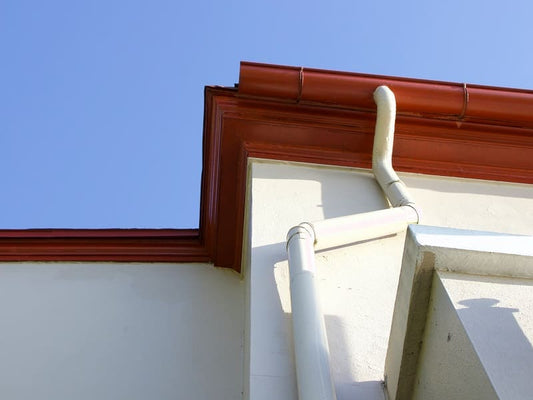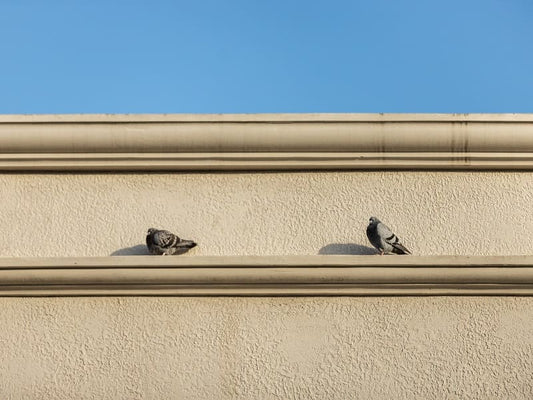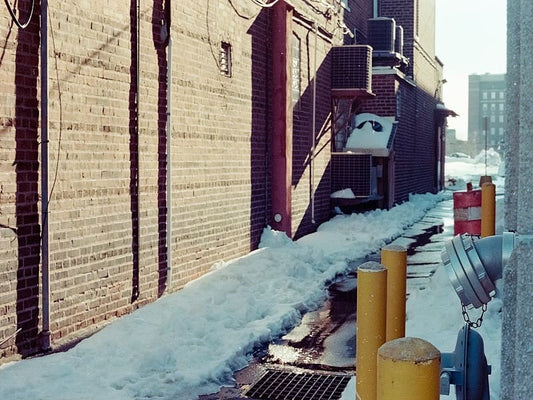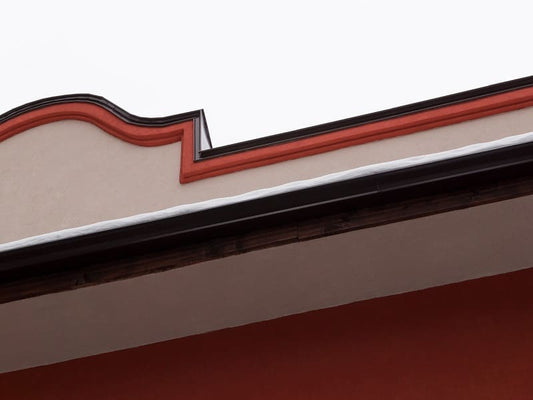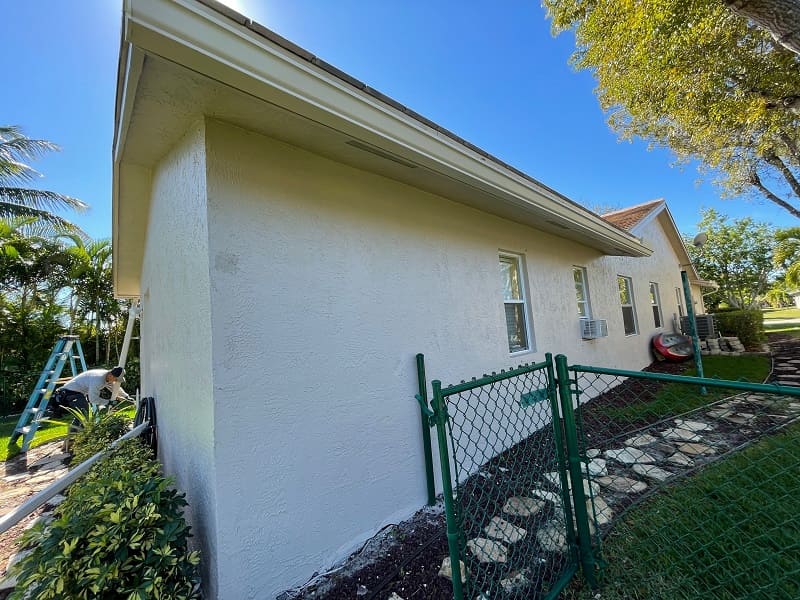
The Truth About Gutter Guards: Do They Really Work?
Why Gutter Guards Are Bad?
Autumn is a lovely time of year to be outside as the weather cools and the leaves begin to fall. However, if you don't carefully clean and maintain your gutters, those colorful leaves might pose major difficulties for your property. Roof damage may happen when water backs up and is especially problematic when snow and ice are present. This can result in expensive roof maintenance or replacements.
Understanding Gutter Guards
A gutter guard, also known as a gutter cover or a gutter grate, is a covering that is fitted over your gutters. It features an aperture, commonly a slit or a mesh-like web of holes, that allows water to drain off the roof and enter the gutter while preventing big debris from entering. Gutter covers work by preventing leaves, needles, twigs, and other waste from clogging your gutters and causing damage to your roof.
Are Gutter Guards Any Good?
While regular gutter inspection and maintenance are a vital component of house maintenance, you may make the task easier by installing a gutter guard system. These guards keep debris out of your gutters, which means less labor for you and less worry about something going wrong. They avoid damage from backed-up water and ice dams when the snow begins to collect by ensuring that water flows freely off the roof.
Gutter guards can be installed in a variety of ways. They all have advantages and disadvantages and will necessitate some forethought for each case. Because some properties receive more leaf debris than others, you must assess the magnitude of your specific problem. Gutter guard systems that are often used include:
Reverse Curve Guards: They are normally composed of metal or vinyl and are installed above the gutter hole. They form a cover that enables water to pass around the guard while keeping big debris from falling into the gutter. The main disadvantage of them is that they could perform better in heavy rain. Water in large quantities will overflow the gutter and fall to the ground below.
Slit Gutter Covers: A reverse curve type with one or two recessed slots that maximize the quantity of rainfall that may flow into the gutter. These systems, like the basic recurve system, struggle to handle strong downpours.
Sponge Guards: They involve placing a sponge that is designed to fit within your gutter. Water passes through, and because the sponge's bulk fills the gutter gap, big debris cannot gather. The major disadvantage is that microscopic detritus, particularly seeds, can become entangled in the sponge and grow.
Metal Screens: These curved screens come in short portions and attach to the gutter's outside lip. They are affordable and simple to install, but they are prone to clogging since the mesh openings capture minute particles.
Gutter Guards with Micro Mesh: Micro mesh guards are made out of a support frame and a filtering mesh material that spans from fine to micro mesh. Micro-mesh technology has the benefit of providing the optimum flow-through properties and not clogging with minute particles. While their performance is higher, the one true disadvantage is that they are more difficult to install.
Why Do Gutter Guards Fail?
Small detritus of various types clogs the other designs' holes, slits, and knockouts. In the spring, when the microscopic debris falls from the trees like snow in a storm, most gutter guards fail horribly. Here are the most common complaints about gutter guards:
l The Craftsmanship Is Poor
It's a pity to bring this up, but far too many complaints begin with installation problems. Find out what gutter guard system will be installed before purchasing a gutter guard. Are you buying from a man armed with a ladder and a pickup truck? If that's the case, he's going to the nearest box shop or supply house to stock up on whatever's inexpensive and convenient.
Have you been informed about how a well-known brand trains its installers? Is anyone factory-trained or sitting down with manuals/videos, or did your installer learn from the guy before him and take up all of his terrible habits?
The installation team is frequently the source of gutter guard complaints, and by doing your study, you can select a trustworthy gutter guard provider that will stand by their work with a simple warranty ensuring this. Too often, goods fail because the installer needs to follow the manufacturer's instructions.
l During The Winter, They Drip With Icicles
When winter arrives, many homeowners call back with concerns like these. Few people consider that they have just erected a cover over your gutters, which makes them as solid as your roof when there is snow or ice.
There are two things to think about. In the spring, summer, and autumn, you install a gutter guard to prevent blockages, eliminate gutter cleaning, and keep debris out of your gutter.
Your installation firm is responsible for informing you that gutter guards are not intended to operate in the winter.
l They Need To Be Cleaned Every Season
Systems with any apertures, slits, or slots will let in debris, even if you want them to operate in the rain. Water flows around the curves of the most popular brands, depositing debris in the gutter below. Because the amount of water is insufficient to cleanse the system of waste, you now have a covered rain gutter that you can't clear.
Curved systems become filthy on their curves as well—the front and bottom, not the top. Water will shoot over the top and miss the rain gutter below if the curve becomes filthy. To keep the system running correctly, that curve needs to be cleaned each season.
l They Do Not Function Properly
Some items look fantastic on paper but could improve in practice. Few systems consider the impact of roof oils that seep from asphalt shingles.
Avoid systems that let debris in, cannot self-clean roof oils, or are made of plastics. They produce issues that lead to numerous gutter guard complaints, resulting in individuals removing their systems.
l They Encourage Bees And Birds To Nest Beneath Them
If you have a curved system or anything with a solid gutter cover, you have just built a home for wasps, hornets, and birds. It is more problematic during the winter or rainy season.
So, these are the factors that lead many homeowners to wonder, "Are gutters good or bad?" and "Why not install a gutter guard?"
Gutter Cleaning And Maintenance
At the most basic level, establishing a maintenance schedule for your house will guarantee that you perform low-interval maintenance, such as gutter cleaning and inspection, at least once a year. With all of the smartphone applications and services available, creating a calendar is a relatively easy task. Also, because the best time to inspect your gutters is after the autumn leaves have fallen, you can do so while decorating your house for Halloween or Christmas. Whatever method you use to remind yourself, you'll need to grab a ladder and properly examine your gutters and downspouts. First and foremost, keep yourself safe! Check for leaks and clean up any debris. Check the gutters.
Conclusion
To conclude, each property will confront unique obstacles based on the kind and slope of the roof, as well as the surroundings. Some houses never have a leaf in their gutter. An invasion of debris will constantly challenge others. You can make the best option for your home if you have a thorough awareness of your specific circumstance and the items available to help.

